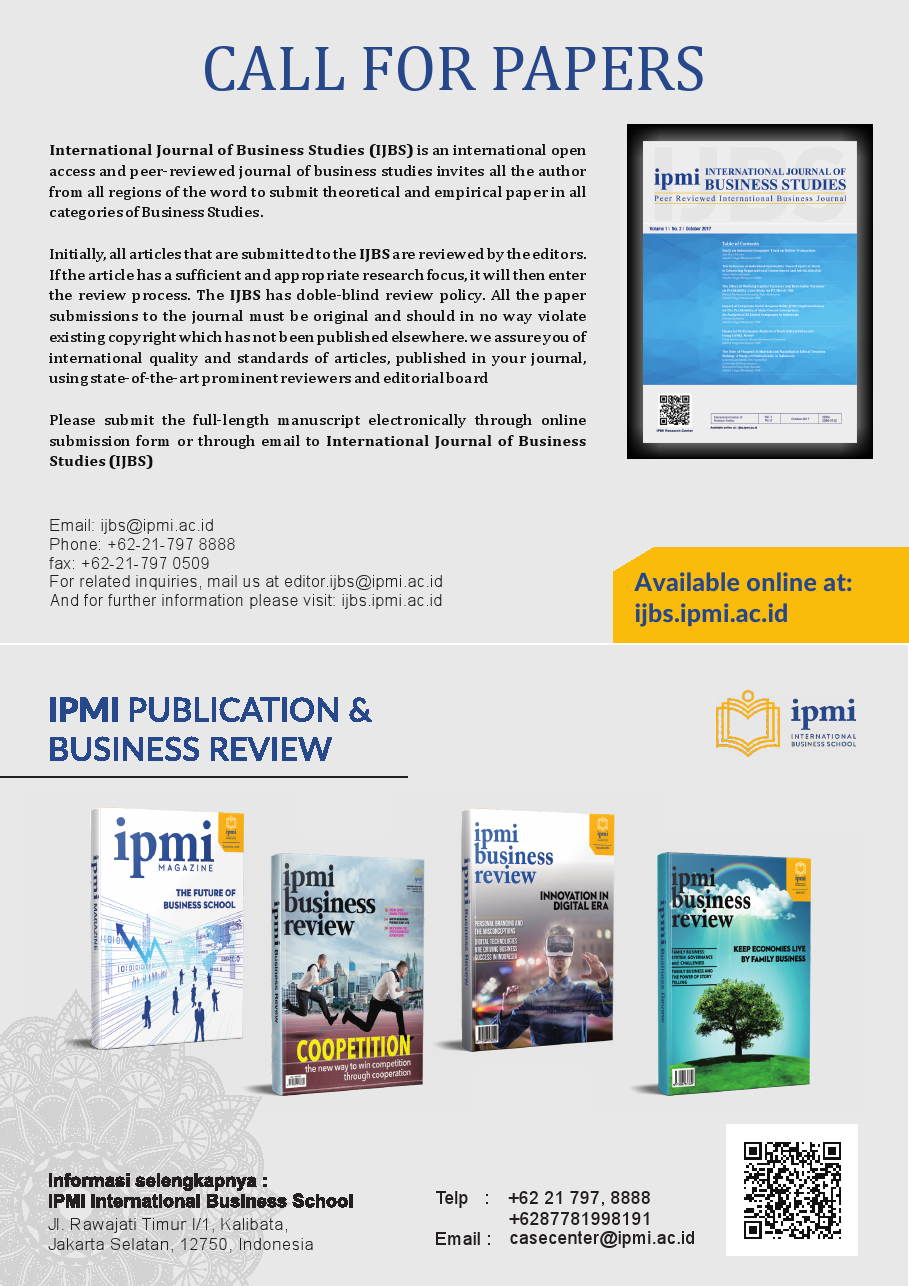The Leadership Style Effect on Telecommunication Industries
A Systematic Review
DOI:
https://doi.org/10.32924/ijbs.v9i1.366Keywords:
Leadership Style; Organizational Performance; Telecommunication Industry; Transactional Leadership; Transformational Leadership.Abstract
This study undertakes a comprehensive and systematic review of the influence of different leadership approaches within the telecommunication industry, a critical factor for organizational success. Using systematic literature review methods, it analyzed 51 articles from four databases across 24 countries. Among 27 leadership styles, there are two of the most studied leadership styles namely transformational and transactional leadership. In addition, newer leadership styles like strategic, agile, ambidextrous, level five, ethical, directive, participative, democratic, and smart leadership have gained attention. The research rigorously assesses how each style influences variables positively or negatively, focusing on the top five crucial aspects; organizational performance, employee creativity, organizational citizenship behavior, organizational culture, and employee performance. The telecommunications industry was chosen because of its rapid expansion, focus on technology, worldwide reach, and substantial economic influence. The industry's traits are closely associated with different styles of leadership. The study offers valuable insights into leadership style adoption in telecommunications and recommendations for further research.
Downloads
Submitted
Accepted
Published
How to Cite
Issue
Section
License

International Journal of Business Studies by Sekolah Tinggi Manajemen IPMI is licensed under a Creative Commons Attribution-ShareAlike 4.0 International License.
Authors who publish with this journal agree to the following terms:
1. Copyright Transfer Agreement Form can be downloaded HERE.
2. Authors retain copyright and grant the journal right of first publication with the work simultaneously licensed under a CC BY-SA Creative Commons Attribution-ShareAlike 4.0 International License that allows others to share the work with an acknowledgement of the work's authorship and initial publication in this journal.
3. Authors are able to enter into separate, additional contractual arrangements for the non-exclusive distribution of the journal's published version of the work (e.g., post it to an institutional repository or publish it in a book), with an acknowledgement of its initial publication in this journal.
4. Authors are permitted and encouraged to post their work online (e.g., in institutional repositories or on their website) prior to and during the submission process, as it can lead to productive exchanges, as well as earlier and greater citation of published work.















